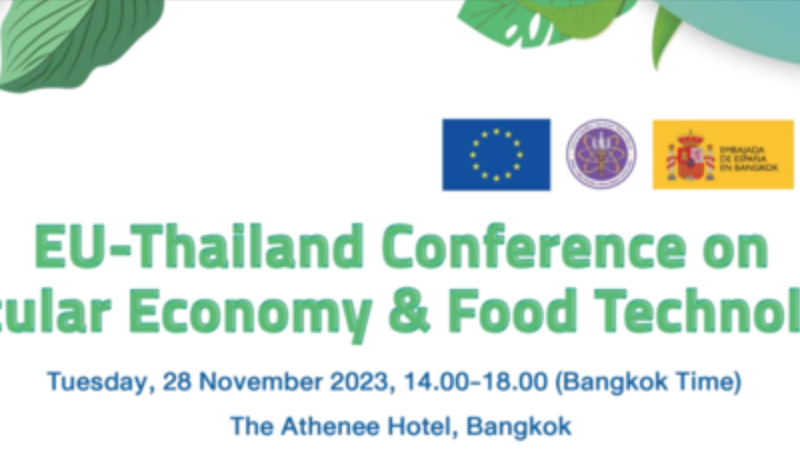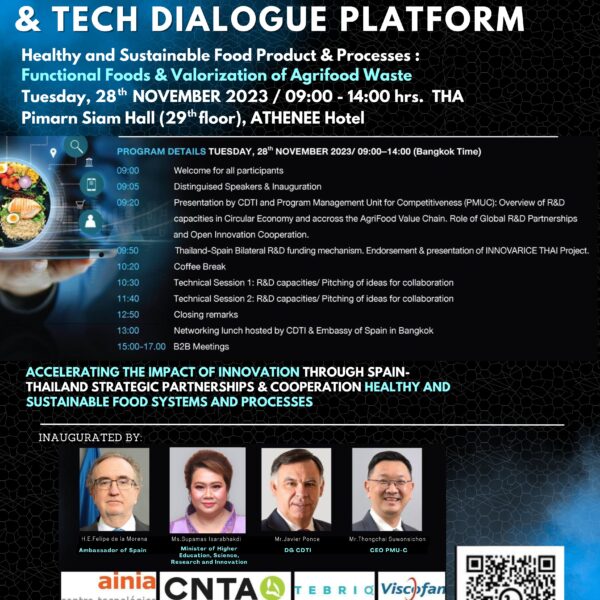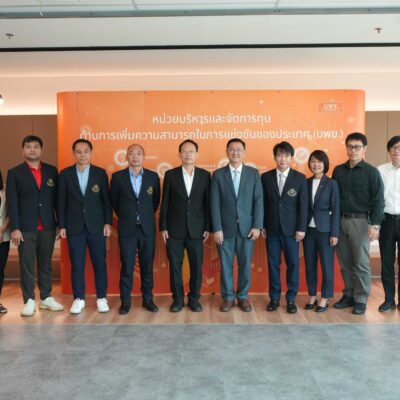The FFC System, Thailand (Food with Functional Claims Thailand) Online Health Claims Registration System for Food and Substances, an important tool for developing high-value food products to introduce to the market.
On June 16, 2022, the Food Science and Technology Association of Thailand (FoSTAT), via the Food Innovation & Regulation Network (FIRN) project, organized a lecture and seminar event titled “Driving Thailand, Elevating the High-value Food Business with FFC.” where the main discussion topic was “promoting cooperation to create innovations for high-value health products” with Assoc.Prof. Siree Chaiseri, Ph.D., director of PMUC joining in the discussions.
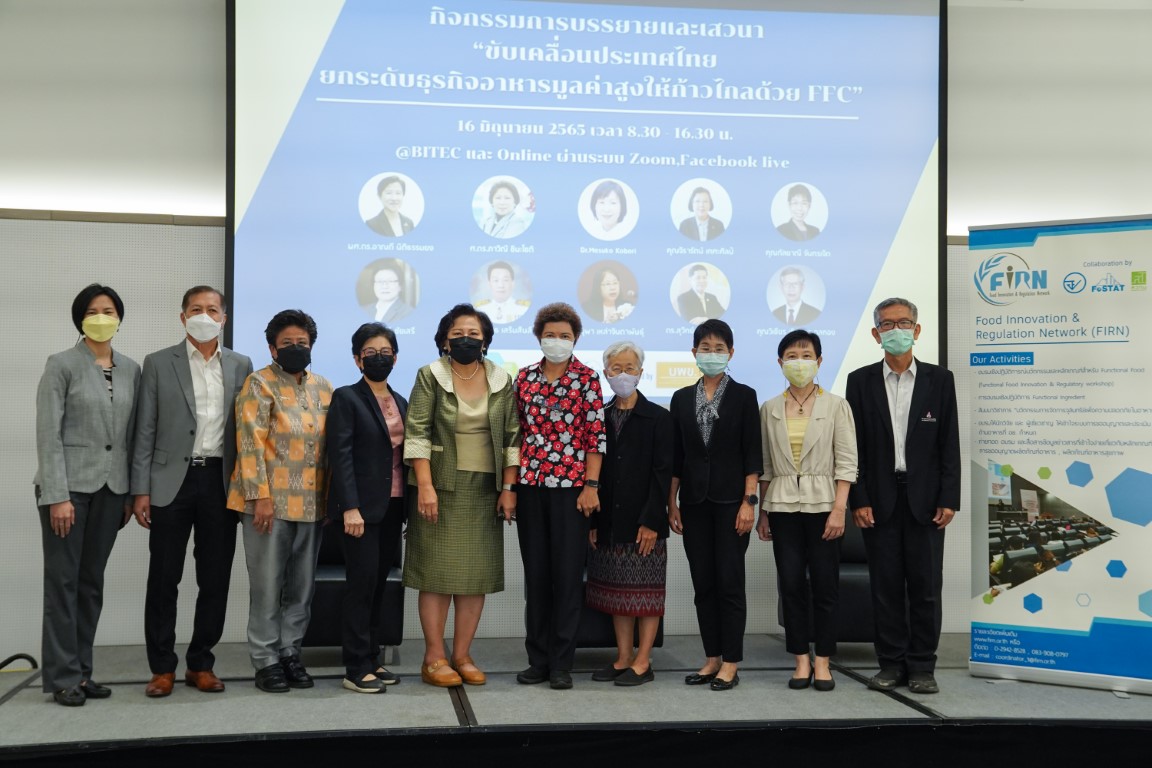
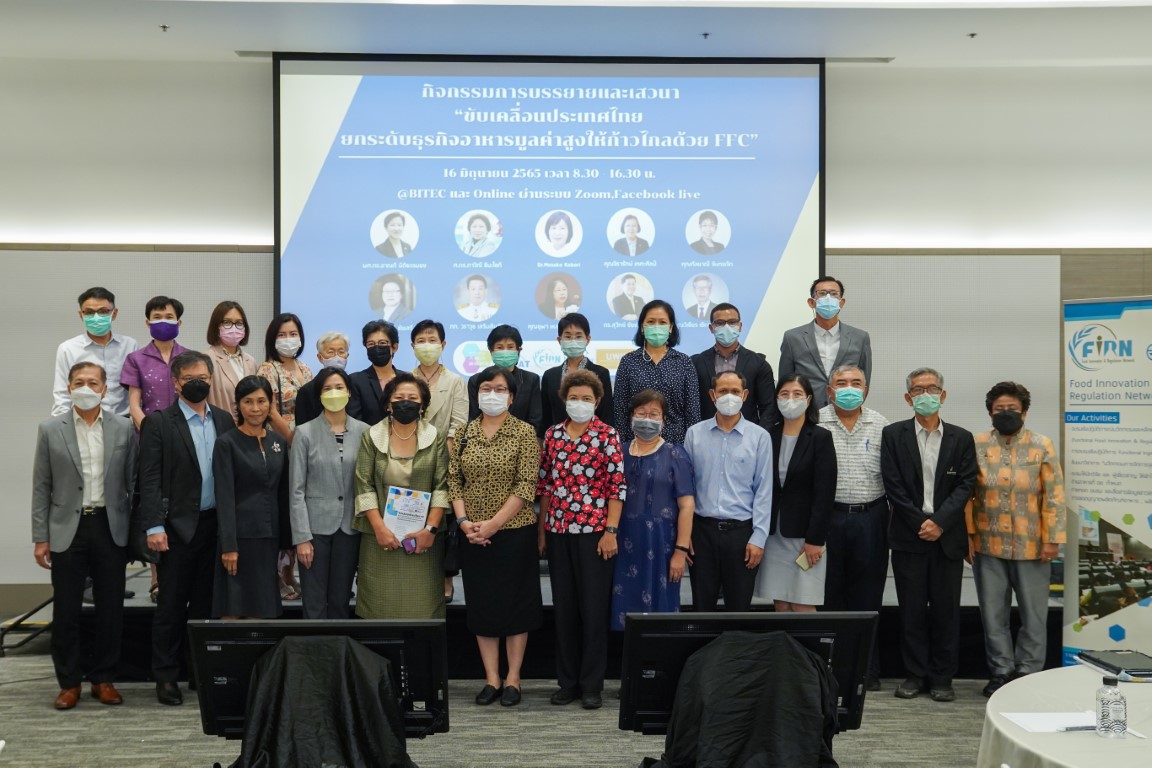
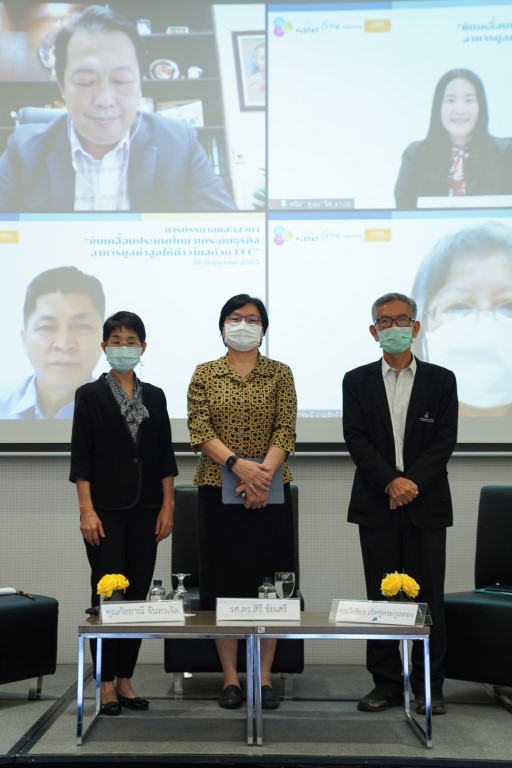
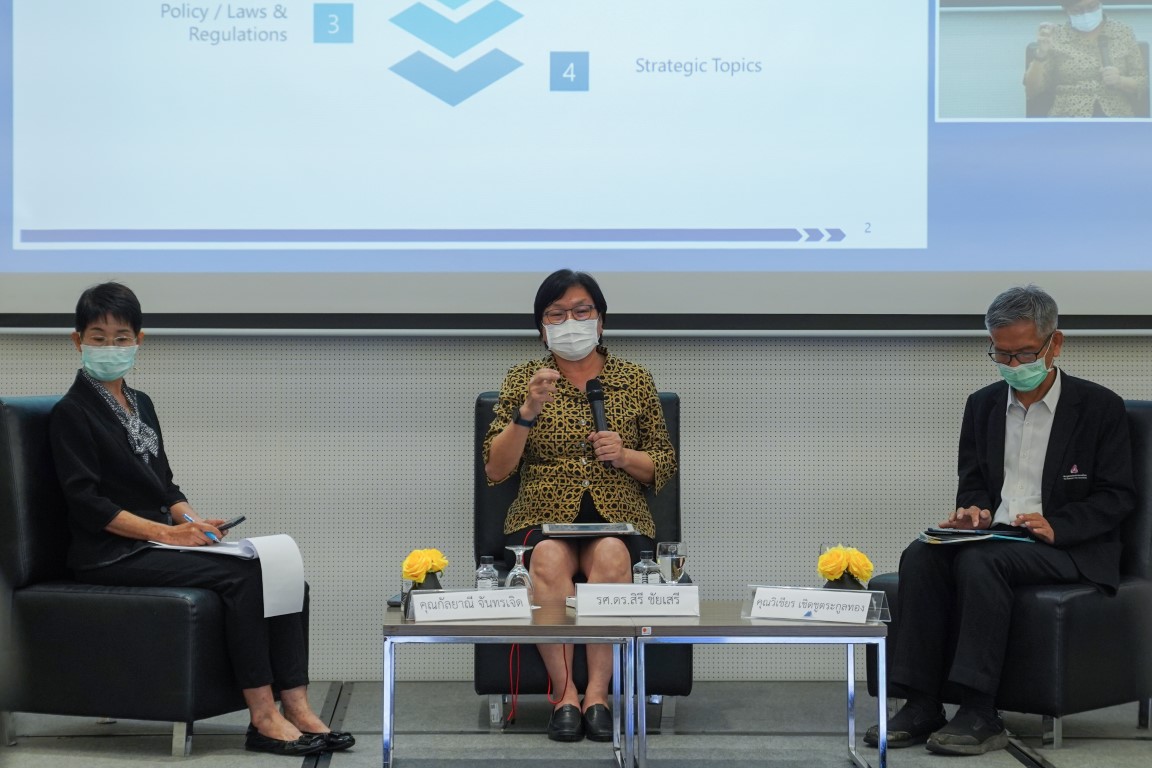
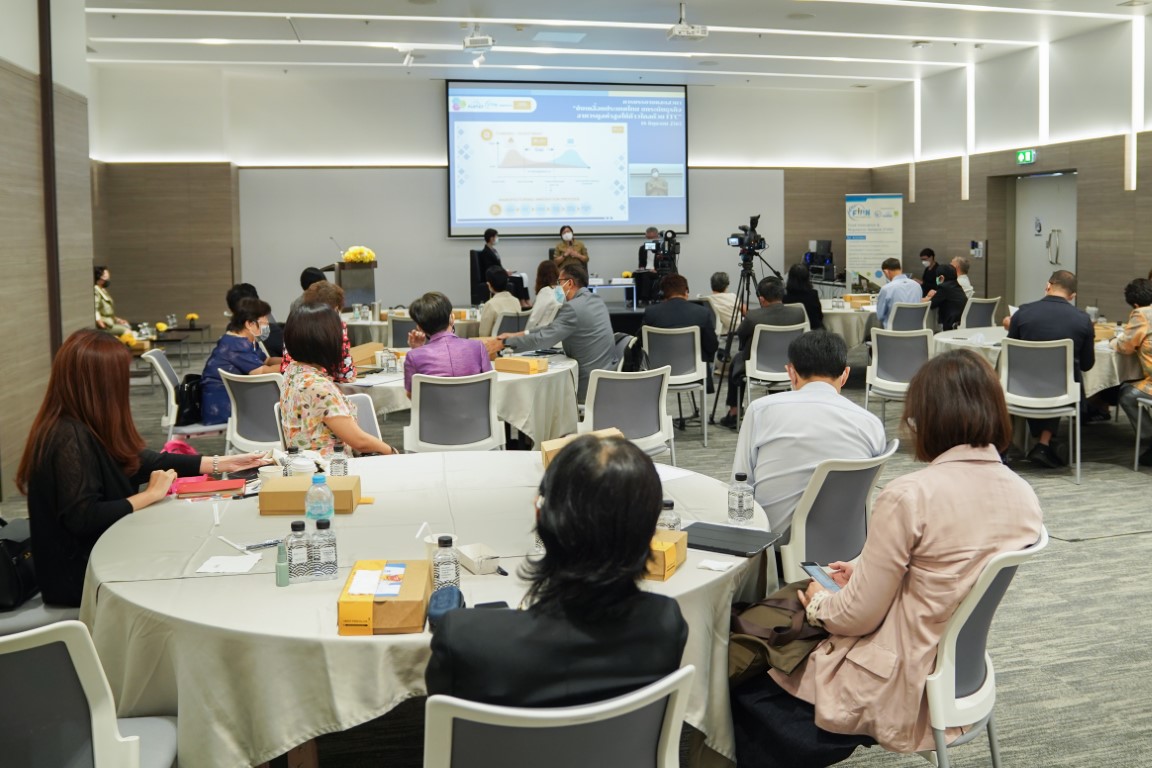
Prof. Pavinee Chinachot, Ph.D., advisor to FoSTAT and head of the FIRN project, discussed the details of the development guidelines for FFC Thailand that the FFC (Food with Function Claims) Thailand system is a tool to drive the development of health food products. It is a system for registering claims of functional foods and functional ingredients (Functional Ingredients) to enable them to enter the market, and add value to Thai agricultural products. In 2020, the market value of functional foods was up to four hundred billion US dollars, and functional substances were worth over ninety million US dollars, and had a market growth rate of more than 7 percent and 5.5 percent, respectively, compared to market value of functional foods in Thailand in 2017, which did not exceed twenty-five billion US dollars. Most business operators preferred to import food extracts from abroad instead of using domestic products. Therefore, the development of health foods and functional ingredients must be supervised to meet appropriate standards in order to encourage the industrial sector to reduce the import of foreign extracts. It is necessary to drive the development of health products in the whole supply chain, from upstream to downstream as well as connecting farmers, SMEs and communities to play an important role in building local food and herbs business and incorporating it into the supply chain process.
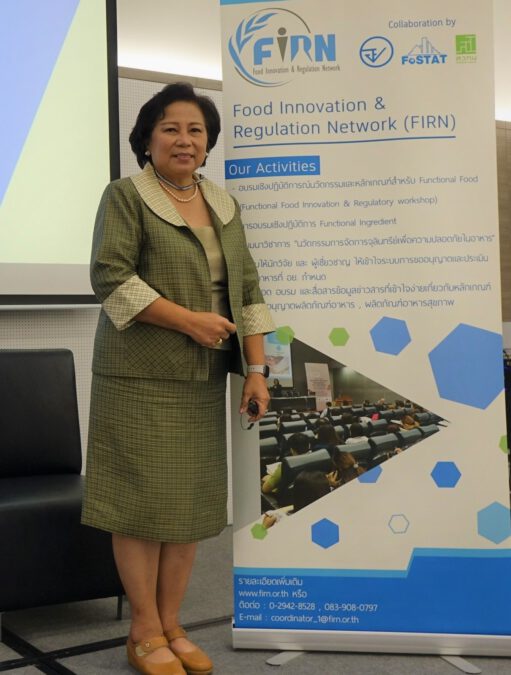
The shortfalls in the product development process in Thailand mainly stem from a lack of knowledge and understanding of research design, analysis, and summary of research results in preparation of supporting documentation for submission to the Food and Drug Administration (FDA), and a failure to establish an understanding of the correct and necessary criteria in confirming scientific evidence required for FDA certification. This means the entire product development process must pass safety, nutritional claims and health claims standards under the Food Act B.E. 2522.
FFC Thailand is a tool for assessing the functional claims of food and substances under Health Claim standard, which will contribute to the development of product marketability and market expansion for functional food products of Thailand. Functional foods are foods that have special properties that are good for human health but which are not nutritional substances, examples being antioxidants and probiotics, with specific functional properties. The keyword “Functional” means the food helps the body function better, and reduces the risk of disease. Research and Functional Claims of foods, with supporting evidence that appropriately confirms the claimed properties and passes the criteria set by FDA, would create higher value for the products. In the past, we have been collaborating to help drive the establishment of FFC Thailand, whether it be PMUC, which supports research funding in the establishment of FFC Thailand, Agricultural Research and Development Agency. (Public Organization) (ARDA), National Bureau of Agricultural Commodity and Food Standards (ACFS), as well as the Department of Science Services and FDA, who have come to help drive the establishment of FFC. From the meeting of the National Food Committee, chaired by the Deputy Prime Minister and attended by ministries and agencies involved in food administration, a consensus was reached at the beginning of 2022 to announce FFC Thailand as a driving force for the national strategic goals in the areas of agriculture and food, in systematically creating functional foods and functional ingredient. As well, an online platform for FFC Thailand is scheduled for a system test in early 2023.
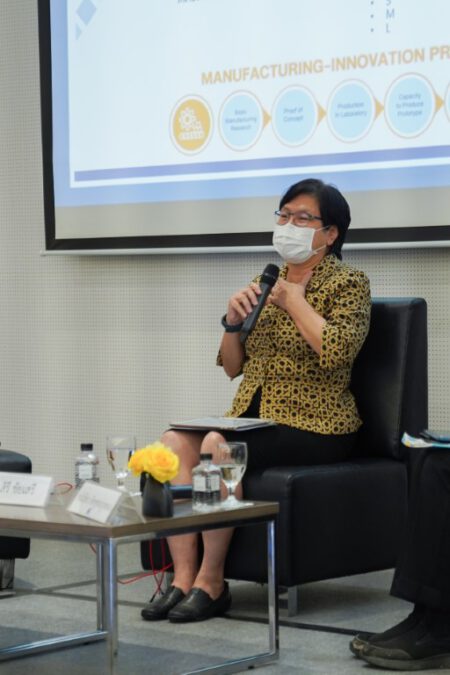
Assoc. Prof. Siree Chaiseri, Ph.D., director of PMUC, spoke about the role of PMUC in creating a mechanism for cooperation between universities and the private sector to try and drive a leap-frog development, as any countries have achieved development by driving cooperation among government agencies, universities and the private sectors, such as the Republic of Korea, etc. In addition to funding from PMUC, which is approved based on consideration of cooperation and support from research agencies, private universities in the country, as well as inviting foreign agencies to further expand on the research work, PMUC also plays an important role in funding the building of a prototype factory for the development of high-value products. Moreover, PMUC provides funding to agencies for developing data to be used in improving regulatory standards or funding for research development in Thailand as well.

